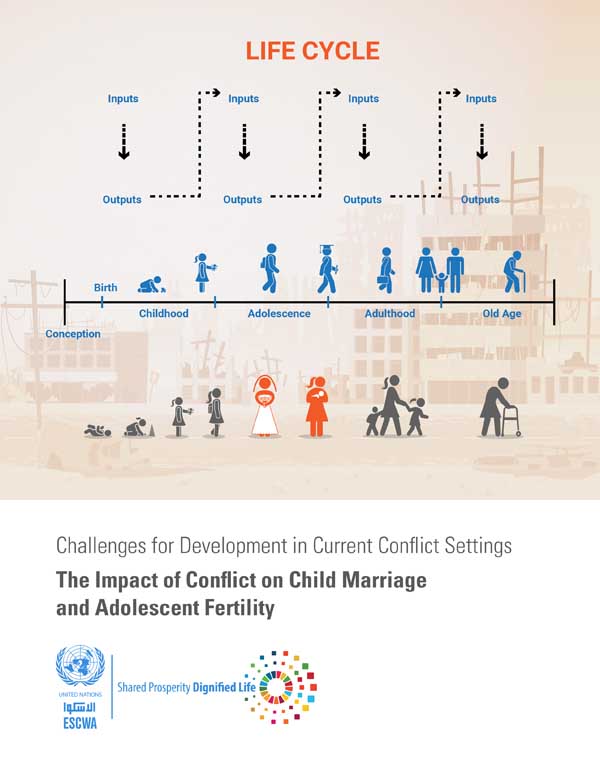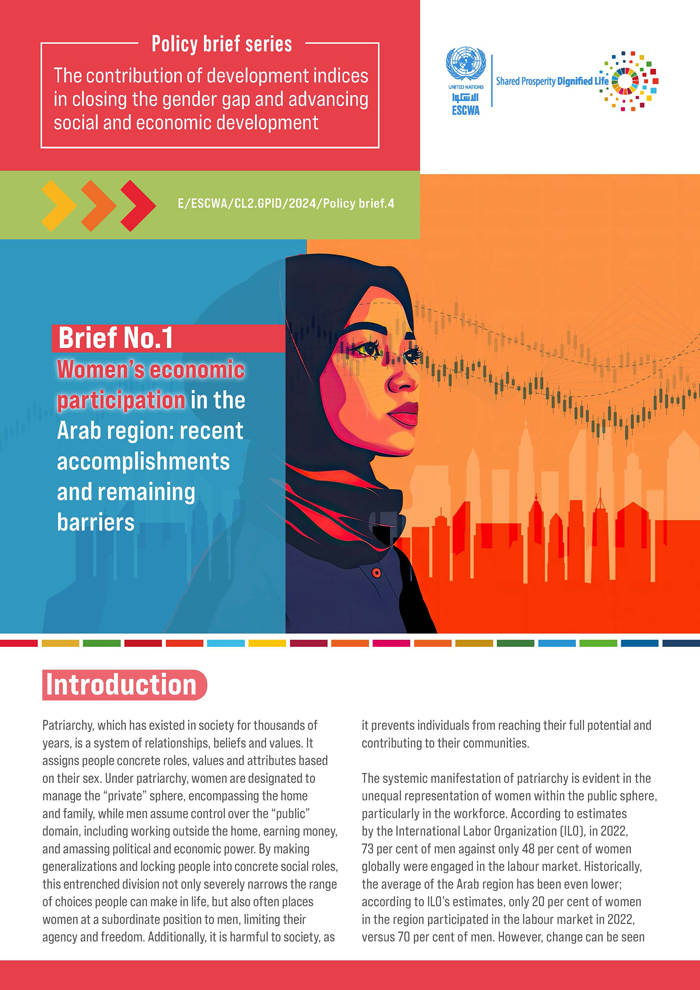
ESCWA Publication: E/ESCWA/ECRI/2019/2
Country: Arab region
Publication Type: Reports & studies
Cluster: Governance and Conflict Prevention
Focus Area: 2030 Agenda, Gender equality, Resilient development & conflict prevention
Initiatives: Life Cycle
SDGs: Agenda 2030, Goal 5: Gender Equality, Goal 16: Peace, Justice and Strong Institutions
Keywords: Conflict, Early marriage, Fertility, Forced marriage, Gender-based violence, Political violence, Violence, Women, Adolescents, Human rights, Legal aspects
The Impact of Conflict on Child Marriage and Adolescent Fertility
January 2020
It is universally agreed that child marriage is a core development and human rights issue, as it hinders the achievement of the 2030 Agenda for Sustainable Development and its Sustainable Development Goals, and contravenes several human rights frameworks. Furthermore, child marriage and increased adolescent fertility are likely to have long-term effects not only on girls and their immediate family, but also on society as a whole, given that child marriage severely hinders the ability of women and girls to participate in a robust, thriving and stable society and region.
The present report considers the growing adversities faced by women and girls in conflict-affected Arab countries, noting that younger girls are increasingly disadvantaged by heightened perceptions of insecurity and exposure to violence in their communities, including child marriage. Child marriage has also been linked to the transmission of intergenerational disadvantage. The present report adds another dimension to the links between violent conflict, marriage patterns and fertility among young women, and the role of public policies in mitigating such practices in conflict-affected countries. The results add to the understanding of how demographic changes can generate dynamics of social exclusion, leading to self-perpetuating poverty traps and long-term disempowerment of women and girls.
Related content
2030 Agenda
, Gender equality
, Resilient development & conflict prevention
,
It is universally agreed that child marriage is a core development and human rights issue, as it hinders the achievement of the 2030 Agenda for Sustainable Development and its Sustainable Development Goals, and contravenes several human rights frameworks. Furthermore, child marriage and increased adolescent fertility are likely to have long-term effects not only on girls and their immediate family, but also on society as a whole, given that child marriage severely hinders the ability of women and girls to participate in a robust, thriving and stable society and region.
The present report considers the growing adversities faced by women and girls in conflict-affected Arab countries, noting that younger girls are increasingly disadvantaged by heightened perceptions of insecurity and exposure to violence in their communities, including child marriage. Child marriage has also been linked to the transmission of intergenerational disadvantage. The present report adds another dimension to the links between violent conflict, marriage patterns and fertility among young women, and the role of public policies in mitigating such practices in conflict-affected countries. The results add to the understanding of how demographic changes can generate dynamics of social exclusion, leading to self-perpetuating poverty traps and long-term disempowerment of women and girls.



